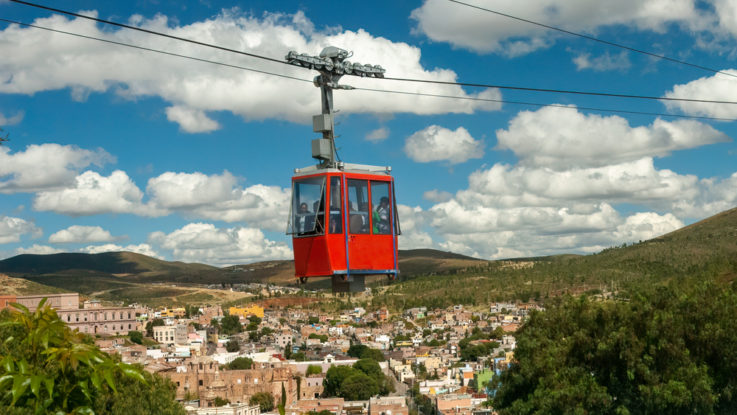
Mexico City Mayor Claudia Sheinbaum has formally opened the first 1.7-kilometer section of a new cable car line in the north of the city that aims to cut commuters travel time and reduce inequality.
The Cablebús system was developed by the Austrian company “Doppelmayr” which has built cable cars in 80 countries. It will run between 63 towers and eventually cover 9.2-kilometers with an estimated cost of 2.3 billion pesos (~US $108.1 million). The line is expected to begin operations in June. The system will have a total of six stations and the capacity to move thousands of people per hour -with an expected usage of 48,000 people per day. Each of the cars can hold 10 people, but capacity will initially be limited to six due to the coronavirus pandemic. The cars run on electricity and can travel approximately 13 miles (20 kilometers) per hour, which is far quicker than most traffic in the city. Ticket costs are yet to be determined, but the mayor pledged that the cost would be within reach of all residents.
“It’s a historic day because we’re opening a new system of collective transport, … it’s social transport,” Sheinbaum said. “Having the best transportation for the poorest parts of the city reduces inequality.”
Traditional transportation solutions – such as bus or subway lines – are difficult to implement in the area as there are no rights of way in the slums, which are built on steep hillsides with 15-degree slopes.
“There are nearly a million inhabitants living in the area around the Cablebus, and they make their trips in small vans that descend through narrow streets, and that may take, from the highest point … as long as 55 minutes or an hour,” Guillermo Calderon, director of the electrical transportation system Mexico City.
Several cities in Latin American cities currently have cable-car systems – including Medellín, Colombia; Río de Janeiro, Brazil; and, La Paz, Bolivia. There are plans to build systems in other Latin American cities, according to the Gondola Project, which tracks cable car programs worldwide.